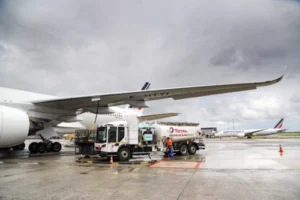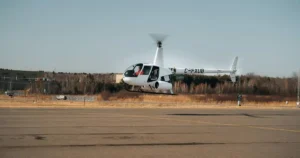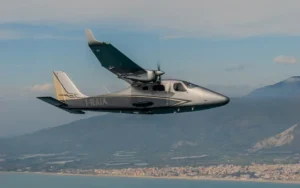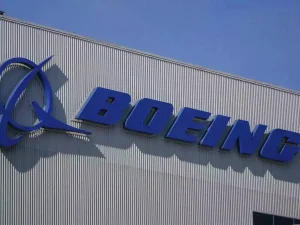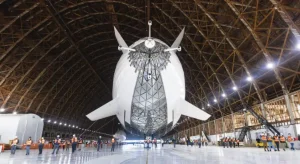Unlocking the Sky: Tackling Cost Hurdles for Sustainable Aviation Fuel, Urges Exxon VP
In a pivotal address on Friday, Senior Vice President Jack Williams of Exxon Mobil underscored the pressing need to overcome cost barriers hindering the widespread adoption of sustainable aviation fuel (SAF). Held at a conference near Chicago, Williams emphasized that despite its potential to significantly reduce carbon emissions, SAF currently occupies a mere 0.2% share in the jet fuel market.
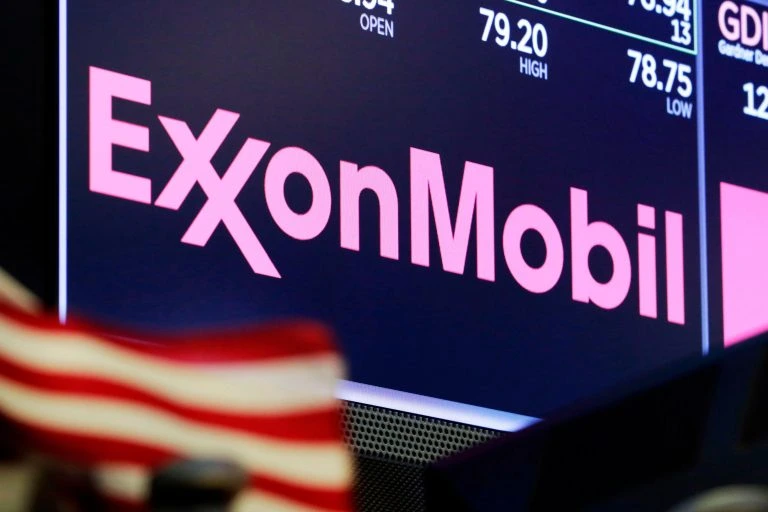
Photo Source: Unknown
Derived from a variety of renewable sources such as plant or animal materials, including used cooking oil and agricultural waste, SAF remains up to five times pricier than traditional fuel, Williams lamented. “There’s one big negative and that’s the cost,” he remarked, urging stakeholders to prioritize strategies for cost reduction.
Williams painted a sobering picture of future jet fuel demand, projected to surge from 7 million to 12 million barrels per day by 2050. Alarmingly, this projection starkly contrasts with the current production capacity of SAF, which stands at a modest 15.8 million gallons annually according to U.S. government data.
The catalyst for progress, Williams suggested, lies in the Biden administration’s Inflation Reduction Act, which he hailed as a pivotal driver for biofuel production, alongside initiatives for carbon capture and storage, and low carbon hydrogen. President Biden himself issued a challenge in 2021, aiming to supply at least 3 billion gallons of SAF annually by 2030.
Against this backdrop, major airlines such as Delta Air Lines and Southwest Airlines have voiced their commitment to sustainability, pledging to replace 10% of their jet fuel with SAF by the end of the decade. This collective ambition underscores the industry’s determination to navigate the challenges of cost and usher in a new era of eco-friendly aviation.

